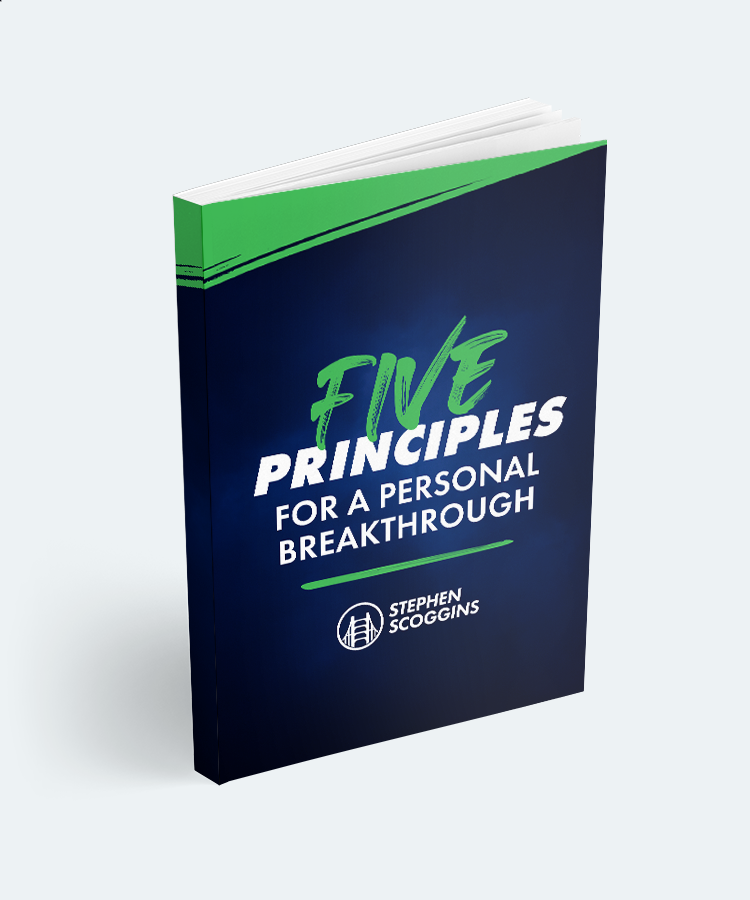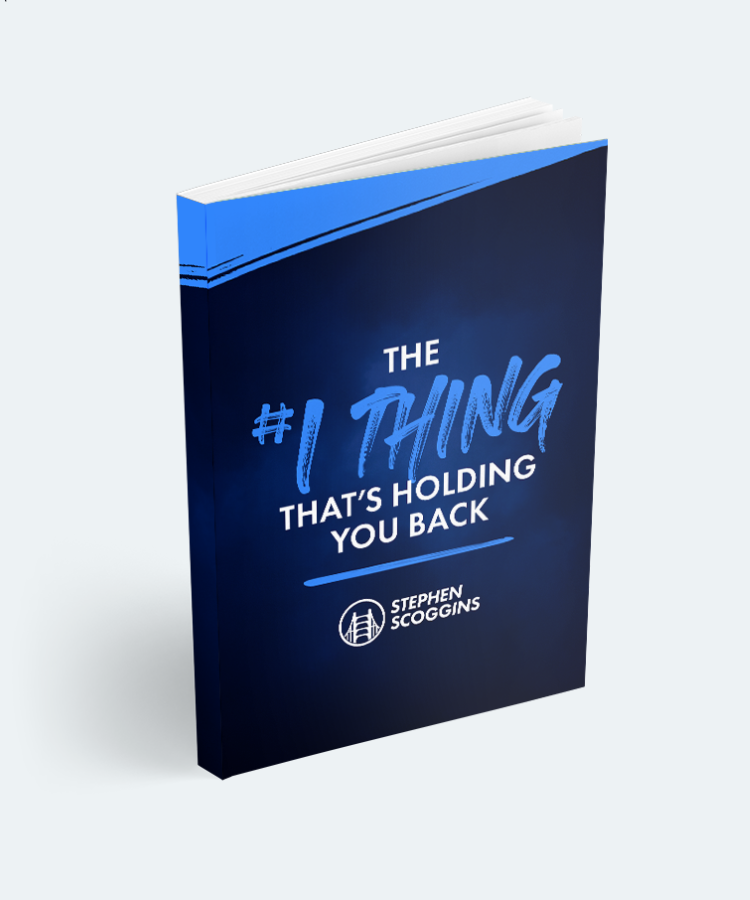
Setting goals is crucial to success. You can’t work towards something if you don’t know what it is. Furthermore, when we write something we need to do, we are way more likely to do it. That’s why I’m going to share my personal 6 best practices for goal setting with you. These principles helped me go from homelessness to being a millionaire, and I’m confident they can help you too.
1. Start Small
Little wins create momentum, and momentum, the longer it’s generated, creates more wins in less time. When goal-setting, it’s crucial that you’re patient and realistic with yourself. It’s way better to achieve small victories consistently than to shoot for the moon, fall short, and get discouraged.
So if you want to bench 400 pounds and can only lift 80 right now, set your next milestone between 95-100 pounds within the first month and be thrilled when you hit it. Transformation is a marathon, not a sprint, so treat yourself with compassion and make sure you do the next thing you say you will do.
2. Be Clear about the Desired Result
To me, a goal is an outcome. If it’s not a measurable result, then it’s not a real goal.
For instance you may say, “I want to be a millionaire.” There’s nothing wrong with this desire, but this is not a very clear outcome. By when do you want to be a millionaire? A year? Two years? Do you mean one million dollars in your bank account, or a net worth of one million? More importantly, why do you want to be a millionaire? What would this accomplish for you? Often what we think is our goal is actually not what we’re really after. A lot of people want to be a millionaire because they want status. If they were to probe more deeply, they might find that they want status because they think that will make them have worth.
Regardless, the best practices for goal setting demands that each goal include the following:
- Realistic deadlines
- Quantifiable milestones
- “Why”
- Relevance to the 8 Pillars of Life
When I’m goal setting, I like to use all five of my senses, right down to what I will taste when I achieve it. What will I literally see when this is finished? What sounds will I hear? The more you can actively experience the outcome is in your mind, the more likely it is that you will get there.
While you may never have all the answers to your questions about your identity and calling, it’s crucial that you are always seeking to define the mountain you’re moving towards. You can still go far without an articulated and worthy destination, but it may be in the wrong direction.
3. Begin with the End in Mind & Work Backwards
Perspective never hurts your decision-making. In contrast, being too short-sighted is a good way to get good at the wrong things and make gains that don’t ultimately matter. This is one of the reasons why the best practices for goal setting includes keeping the end in mind. That and the fact that hitting meaningless benchmarks is often a form of procrastination, intended to keep us from doing the thing we really need to do. Therefore, once you’ve clearly defined your goal think carefully through what would need to happen before that goal could be achieved. Not only will this help you keep your eyes on the prize, but it will also make your plan more effective from the get-go.
I’ll add that the best way to get long-term vision for your life is to know who you are, how you work, and what you were put on this earth to do. You’re far more likely to nail the best practices for goal-setting when you know yourself. This information will more than make up for the majority of the information that you lack. When following best goal setting practices, keep circling back to the following self reflective questions:
- What motivates me the most on a daily basis?
- How can I leverage my gifts and strengths toward achieving this goal?
- In what ways could my weaknesses sabotage me?
- Will this goal matter at the end of my life? How?
- Have I ever attempted a goal like this before? How can I learn from that experience?
4. But Don’t Plan Too Far Ahead
I know, this seems to contradict the advice I just gave you. Here I’m not talking about keeping your eye on the prize. Rather I’m trying to illustrate the fact that the farther away your goal is, the harder it will be to work your way backwards from it and therefore achieve it. Furthermore, the further into the future our predictions go, the less realistic they are. Human beings are not even good at predicting tomorrow’s weather, so be strategic and practical at once. Balancing this paradox is key in the best practices for goal setting.
I keep a limited set of goals that can’t be achieved in 12 months. In fact, in my experience, goals are best planned in 6 or 12 months increments. This is because 6 months is usually long enough for me to form new habits and see results from those habits. So if I don’t think a goal can be achieved in this time, I will usually break it down into sub goals and focus on those.
5. Measure, Adjust, and Implement
Everyone knows the phrase, “Measure twice, cut once.” However, most of us don’t do this. We get impatient and charge ahead, and impatience is the enemy of best goal setting practices. To make the best plan possible, we need to continually ask questions like “why”, “how”, and “what else” before implementing it. When we do this, we can save ourselves a lot of time and energy.
That said, it’s inevitable that you will need to change your approach toward your goals at some point. Even your goals themselves may need resetting, particularly the farther they are into the future. That’s why it’s so important to routinely check in, reevaluate your plans, make changes, and adapt accordingly. This will help you get where you want to go faster.
6. Take Action Now
Only actions lead to results. Goal setting is only the first step in achieving goals. The rest gets down to follow-through. When we don’t make the same choice every day to move forward, we stay stuck. Even worse, setting goals and flaking out on them can create a habit of dishonesty and lack of trust with ourselves. When we say we’re going to do something and don’t do it, we display a lack of integrity, even if it’s only to ourselves.
“A good plan violently executed now is better than a perfect plan executed next week.”
-George S. Patton
That’s why it’s so important that you set the right goals and get the encouragement and guidance to reach them. That’s why the Journey Principles Institute exists – to help you know yourself and achieve the results you can’t on your own.
Are you interested in more information on best goal setting practices or self awareness? Check out our free resources that will help you explore your gifts and plan your path to success.









